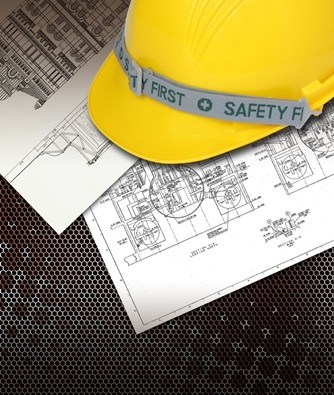Introduction
This highly-interactive training seminar will give you the skills and confidence to develop and sustain an effective safety culture that will enable your business to flourish. The seminar will provide delegates with a unique blend of proven management techniques and practical implementation to ensure a sustainable culture is achieved that will be a crucial aid to maximizing business performance.
An effective safety culture is widely accepted as being the essential component of an organization’s safety management system. Culture is to an organisation as personality is to an individual in that each individual has one and each organization has one. A culture, just like a personality, is unique to each organization however a culture can either be supportive and stimulating or, if not carefully developed, highly debilitating and destructive. This seminar will provide you with the all the necessary tools to create your own unique and effective safety culture that will empower your workforce.
This seminar will highlight:
- The impact of an effective safety culture on achieving good safety management
- How to establish a safety culture and identify behavioral change improvement opportunities
- How to assess the safety culture of an organization and the use of the HSE cultural change model
- The importance of human factors and the work of Taylor, Herzberg, McGregor and Maslow
- The business benefits of sustaining an effective safety culture
Objectives
At the end of this seminar, you will:
- Develop a clear understanding of human factors and their importance in developing an effective safety culture
- Appreciate the elements of safety management systems and their purpose
- Understand the consequences of behavioral acts and omissions as prime causes of accidents and adverse events
- Understand how to develop a step-by-step safety cultural improvement program within your own organization
- Develop skills for identifying, evaluating and implementing cost effective solutions for influencing behavioral change
Training Methodology
Participants to this seminar will receive a thorough training on the subjects covered by the seminar outline with a highly experienced tutor utilizing a variety of proven adult learning teaching and facilitation techniques. This will include active participation during the seminar through the use of exercises, case studies and open discussion forums. Videos shown will encourage further discussions and delegates are encouraged to bring forth and share their own experiences and issues from their organizations.
Organizational Impact
By developing and maintaining an effective safety culture an organization will create a satisfied and empowered workforce and enhance their organization’s reputation and profile. The organizational impact will be:
- Professional development of staff
- Improved communications
- Improved safety behavior
- Reduction in incidents
- Receiving practical steps for changing culture
- Leaders better equipped to face adversity of incidents head on
Personal Impact
Course participants will learn how to develop an effective safety culture using a variety of proven management techniques and interpersonal skills. The personal impact will be:
- Understanding the integrated approach of safety culture
- Be able to assess the safety culture of the organization
- Receiving practical methods to improve safety behavior
- Appreciating the importance of human factors
- Developing a SMS based on safety culture principles
- Recognizing the benefits of an effective safety culture
Who Should Attend?
This course is suitable to a wide range of professionals but will greatly benefit:
- All line managers and supervisors
- Production and process engineers
- Maintenance personnel
- HSE personnel
- Human resources professionals
- Any other personnel who are involved in planning and implementing the organization’s HSE management system
SEMINAR OUTLINE
DAY 1
Safety Culture and Leadership
- Safety culture and safety climate
- The influence factor
- Leadership and culture
- Improving safety performance
- Historical review
DAY 2
Safety Management Systems
- Safety management systems and safety culture factors
- Essential safety management system components
- Developing an effective safety management system
- Sustaining an effective safety management system
- Reasons for safety management system failure
- The true benefits of an effective safety management system
DAY 3
HSE Model for Safety Culture
- Identifying problem areas
- Dependent, independent and interdependent cultures
- Planning for change
- HSE cultural change model
- How and when to intervene
- Key performance indicators
- Success factors and barriers
- Attitude questionnaires
DAY 4
Behavioural Safety
- Safety culture and behavioural safety
- Human factors
- Negative and positive dimensions
- Taylor, Herzberg, McGregor and Maslow
- ABC analysis (antecedents, behaviour and consequences)
- What drives behaviour
- Natural penalties and consequences
DAY 5
Assessing the Safety Culture
- Establishing the current status of a safety culture
- Information inputs and questionnaires
- Case studies from different organisations
- Managing people and their attitude to safety
- Developing questionnaires
- Personal action plans

